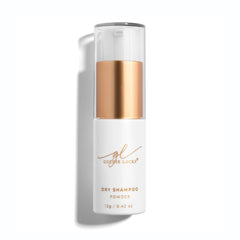If your scalp begins to itch a day after washing, it is often a sign that something in your routine or environment has disrupted its natural balance. Common culprits include leftover product residue, hot water, hard water minerals, or irritation from ingredients such as sulfates or fragrances.
At times, dryness or underlying scalp conditions like dandruff or seborrheic dermatitis may also play a role.
The reassuring news is that most causes are minor and can be addressed with a few simple adjustments.
Read on to discover what might be behind your post-wash itch and how to find quick relief while keeping your scalp calm, comfortable, and healthy over the long term.
Index
Itchy Scalp After Washing Hair Causes

Sebum Rebound & Yeast
After washing, your scalp’s natural oils, or sebum, begin to return within 24–48 hours. For some people, this rebound can feed Malassezia, a naturally occurring yeast that thrives on scalp oils and may trigger inflammation and itching shortly after washing.
Product Residue & Poor Rinse
When shampoo, conditioner, or styling products are not rinsed out completely, they can leave a film on the scalp that causes irritation as the hair dries. Taking an extra minute to rinse thoroughly with lukewarm water helps remove buildup and can significantly reduce itching.
Hard Water & Hot Showers
Minerals in hard water, such as calcium and magnesium, can leave a residue that traps oils and irritants against the scalp. Hot water can exacerbate the problem by stripping protective oils and leaving the scalp dry.
Using lukewarm water and incorporating a weekly clarifying shampoo can help remove mineral buildup and maintain scalp balance.
Contact Dermatitis
Irritation or allergic reactions to hair product ingredients, including fragrances, dyes, or preservatives, are another common cause of scalp itch. Symptoms may include stinging, redness, or a burning sensation shortly after use.
Switching to fragrance-free or hypoallergenic formulas often resolves this issue and restores comfort.
How Do You Get Immediate Relief From an Itchy Scalp?

Thorough Rinse & Temperature Reset
Rinse thoroughly with lukewarm water to remove any leftover shampoo or conditioner. Residue is one of the most common causes of post-wash irritation. Avoid hot water, which can strip natural oils and leave the scalp dry and tight.
After rinsing, blow-dry on a cool or low setting, ensuring both scalp and hair are fully dry. A damp scalp can trap product and create a warm environment that worsens itching.
Switch to Gentle Products
Simplify your routine by choosing shampoos labeled gentle, for sensitive scalps, or hypoallergenic, such as Goldie Locks® Signature Shampoo and Conditioner, which leave the scalp feeling fresh without irritation.
Formulas containing soothing natural ingredients like aloe vera, oat extract, or chamomile can help calm irritation and support the scalp’s natural balance.
If you color your hair, avoid products containing PPD (p-phenylenediamine), a common dye ingredient that can cause allergic reactions in some people.
Targeted Actives by Symptom
For certain scalp issues, using specific active ingredients can help address the underlying condition:
- Dandruff or Seborrheic Dermatitis: Shampoos containing zinc pyrithione, selenium sulfide, or ketoconazole help control yeast growth and reduce flaking and itching. Follow the label instructions, typically 2–3 times per week.
- Thick Scaling or Psoriasis: Shampoos with salicylic acid can soften and loosen scale buildup, making other treatments more effective. Always follow directions and avoid overuse, as these formulas can be drying.
If scalp itching persists despite adjustments to your routine, consulting a dermatologist or trichologist may be necessary to identify the root cause and recommend targeted treatment.
How Do You Deep Clean an Itchy Scalp?

Clarify
If you live in a hard-water area or use a lot of styling products, buildup can cling to your scalp and increase irritation. Using Goldie Locks® Clarifying Shampoo once a week helps remove minerals and residue. Be sure to rinse thoroughly to maintain a clean, balanced scalp.
Scalp Hygiene Habits
Effective scalp care extends beyond washing. Clean your brushes and combs regularly, wash pillowcases and hats, and limit dry shampoo use to prevent buildup. These small but consistent habits reduce bacteria, oil, and residue, helping to keep your scalp comfortable and flake-free.
How Many Times Should I Wash My Hair if I Have an Itchy Scalp?

General Guidance
For most people with an itchy scalp, washing every 2–3 days is a good starting point. Adjust based on your scalp’s oiliness, sweat, styling habits, and symptoms.
Focus on gentle washing techniques rather than a strict schedule, as overwashing or scrubbing too vigorously can make itching worse.
Itch Worsens When You Skip Washing
Some people notice an itchy scalp after not washing hair for 2 or 3 days, especially if flakes or redness appear.
In these cases, modestly increasing wash frequency or incorporating a targeted antifungal shampoo can help keep irritation under control. Monitor how your scalp responds and make adjustments gradually rather than abruptly.
When to See a Dermatologist

You should consult a dermatologist or trichologist if you experience persistent scalp itching lasting more than two weeks or notice any of the following warning signs:
- Hair shedding or patchy hair loss
- Thick plaques or scaly patches
- Pustules or signs of infection
- Fever or a spreading rash
A professional can help identify the underlying cause, whether it is a skin condition, allergy, or scalp imbalance, and recommend the most effective treatment for lasting relief. Early evaluation ensures you receive targeted care before the problem worsens.
Final Thoughts
You don’t have to live with an itchy scalp after washing your hair. Most next-day itch can be addressed by thorough rinsing, using lukewarm water, switching to gentler products, and incorporating the right active ingredients when needed.
Every scalp is unique, so it may take a few attempts to discover what works best for you. Track triggers such as specific products, water hardness, or wash frequency to identify patterns and prevent future irritation.
Relief is possible, and your scalp deserves to feel healthy, comfortable, and balanced every day.
























